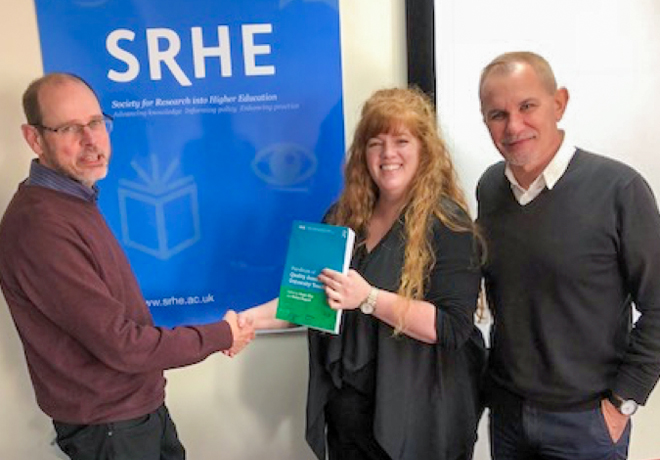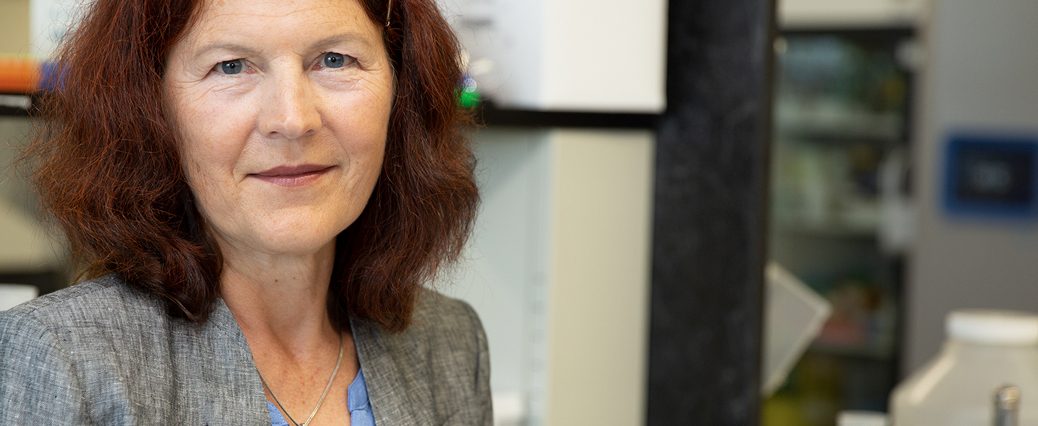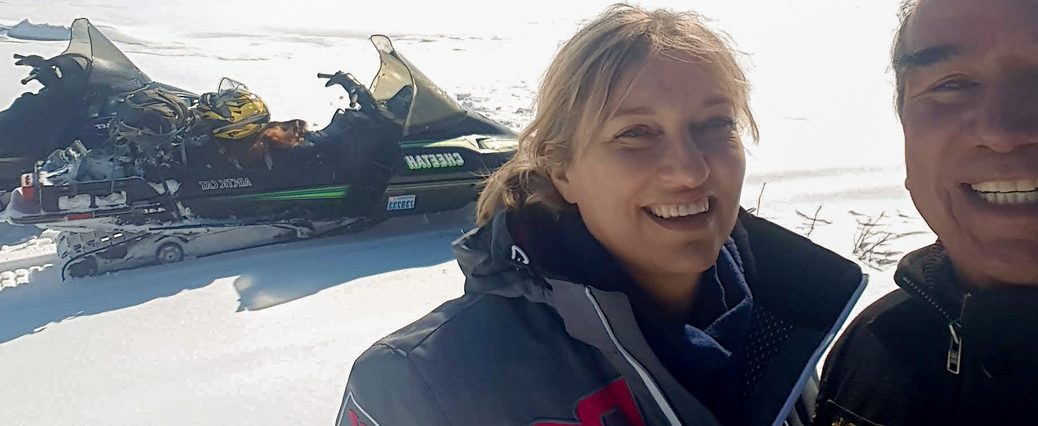Noojamadaa: Helping build healthy relationships within Anishnawbek communities
Marion Maar, Associate Professor of Medical Anthropology at the Northern Ontario School of Medicine (NOSM), together with First Nations communities of Manitoulin Island and LU Master of Indigenous relations graduate, Beaudin Bennett, has created Noojamadaa, an educational photo exhibit exploring healthy relationships in First Nations families and communities.
Before coming to NOSM, Maar was a researcher with an Aboriginal Health Access Centre on Manitoulin Island for eight years. Because of her longstanding relationship with the communities, she was approached about working on a community-based research project to address intimate partner violence.
Research has shown Indigenous women experience intimate partner violence at a higher rate than non-Indigenous women, with significant health and social consequences, says Maar, but many primary-care practitioners need to learn more about what their role should be in addressing it.
Maar says some of the goals of the research project are to understand the context of intimate partner violence and the role of primary care practitioners in addressing violence their patients experience at home, and what kind of training and resources they need to better fulfill that role.
She says the communities chose to begin the research through a photo exhibit exploring healthy relationships among the Anishnawbek. Participating women explained that in order to reduce intimate partner violence, relationships needed to be healed not only between spouses, but also with their families, communities, the Nation and the environment.
“It’s a difficult topic, and the communities decided that creating awareness was the first step,” says Maar. “The communities didn’t want to take a negative approach to it, or have Indigenous people reduced to a statistic. Communities asked: ‘What’s good about our relationships, and how can we create more of that?”
Randy Trudeau is one of the facilitators of Noojamadaa. A hunter, fisherman, trapper and artist, Trudeau says he wanted to share the healing power of building a relationship with the land.
After being approached by the research team to participate in the project, Trudeau agreed to allow a photographer to shadow him throughout his day to day life, taking photos to demonstrate how he has built a relationship with his environment.
“I find that throughout all I’ve gone through in my life, all the traumas, my healer has always been nature,” he says. “So I’ve dedicated my life to living off the land, living peacefully and learning ways to heal myself, and teaching other men to do the same.”
The exhibit has expanded to include art that displays healthy relationships, and Trudeau has also contributed paintings to the exhibit.
To date, Noojamadaa has been displayed in diverse venues, including at the Laurentian University School of Architecture, the Debajehmujig Creation Centre in Manitowaning, and the Sudbury District Health Unit, McMaster University and Queen’s Park. The exhibit is also accredited for continuing education.
The project was initially funded by the Women’s Xchange $15K Challenge, but additional funding from the Canadian Institutes of Health Research (CIHR) was provided to explore a holistic approach to address violence, trauma and opioid addictions.
“The CHIR grant will help us to increase collaboration and relationship building with all relevant service sectors, including mental health, social services, child protection, justice and police so we can better develop and coordinate roles of each sector in addressing intimate partner violence, and underlying issues including addictions, in a culturally safe way,” says Maar.
Read more stories like this one in the latest edition of The Scope.





